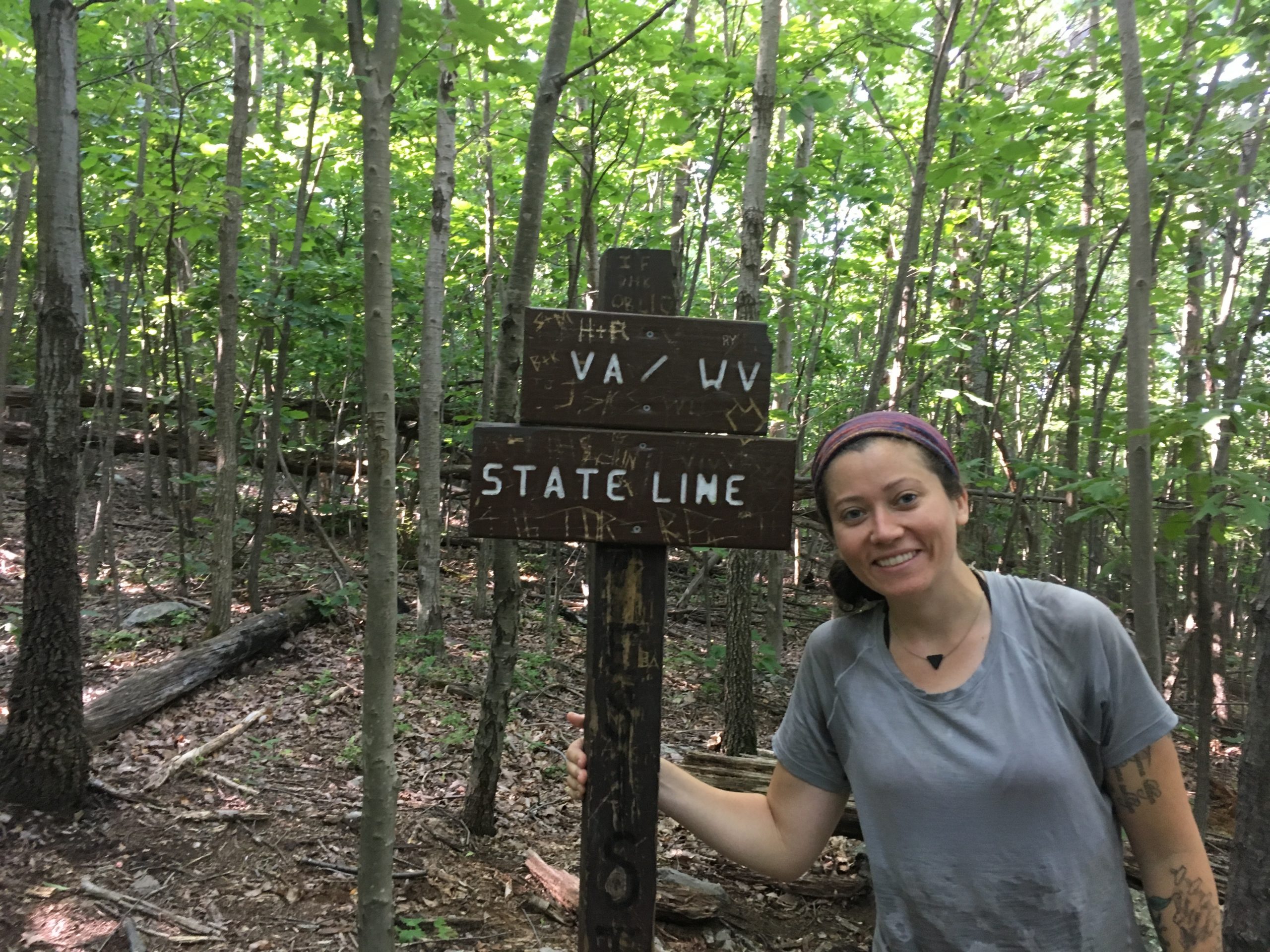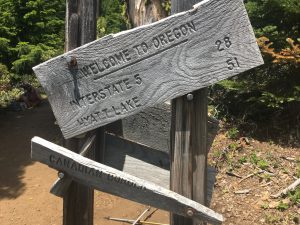The limitations we have in life – whether real or perceived – are frequently created by ourselves. More often than not, if we think we can accomplish something and have the mental fortitude and resilience to do so, we will usually prevail. Likewise, it is easy to find the negative in anything if you are looking for it, making it somewhat easy to give up on something. This is the basic premise of Carol Dweck’s Growth/Fixed Mindset.

This is not to say, however, that if I think I can do something, I inevitably will. Life is unfortunately a tad more complicated than Descartes’ statement, “I think therefore I am.” Our bodies will frequently do what we ask of it, like ultra-endurance athlete David Goggins says, “When your mind says you’re done, you’re only 40% done.” One tough day on the Appalachian Trail made me think I was finished and unable to continue:
Today was one of my hardest days, and it was barely 20 miles! My knee felt like someone was performing an estranged version of medieval torture on it all day. I was exhausted mentally and physically from the huge jagged rocks, incessant bugs, full body pain, lack of fun recently, and how expensive the hike is getting. I cried seven times today, which is more than I’ve cried in the last year.
I considered hitching the last six miles to town, but it was important for me to hike into Harper’s Ferry. I caught up with a friend from ND for a while on the phone, which took my mind off the pain for the time being. By doing so, I was on the receiving end of multiple surprised faces of day hikers I passed, as it looked to them like I was talking to myself. I had been favoring my left leg on the hike lately, so my right hip has also started to ache. Perfect.
When I reached the bridge, Machine asked if I was ok after seeing my body language and I started crying a little, but only because at the same moment I saw people laughing and floating down the river below us. They looked so relaxed and carefree – unbeknownst to them there were hikers above pushing themselves to their limits just to get to a mountain nine states away. Normally floating humans don’t produce such a response in me, but earlier on the phone I had mentioned how I felt like I don’t have the time to enjoy the hike because of my deadline.
Once at the hotel, I quickly showered, changed, and met an old friend for dinner. I hadn’t seen her in a year and couldn’t believe she and her daughter drove over an hour to see me. How quickly my feelings shifted by spending a brief evening with a friend!
I had to remember my motivations, even if it was merely getting to a town on my own two feet, in order to persevere through the day’s hardships. But some days you just don’t want to push yourself any further, even if you still can.
Below I interview Appalachian Trail thru-hikers about how they would label the trail in terms of being more mentally or physically challenging, and was surprised by the variety of answers…
“Some people want to hike fast and others want the social aspect. It could be 60% physical for those who are ultra-marathoners. For myself it was 50/50. I was always aware of how it felt physically. When I feel awful it’s the mental side of things that comes into play,” one male hiker explained.
Another hiker thought of it in different ratios, which ended up being the most common among hikers. “75% mental 25% physical. It’s far more mental. If you’re not feeling good one day just stop and put your tent up. It’s whether you want to press on that gets you. I’ve had multi-million-dollar trials, and I’ve never had a moment like when I put my tarp over my head and sat there on the trail wondering if I could do this,” one 65-year-old hiker admitted.
An ambitious young hiker talked to me in between bites of ramen. “95% mental 5% physical. When we started, a guy had a peg leg and he did the trail. He had the best attitude out of anyone. If you have the desire to do something, nothing can get in your way. Anyone can do this, you just have to be prepared mentally that it might take you longer to do it. You have to want to get up everyday and do it.”
“75% physical 25% mental. It was harder than I expected. I’ve never had knee issues. I’m a runner and have done marathons and my knees are bothering me. I’ve lost weight, so the physical aspect has been hard for me. I’ve been prepared for the mental aspect. You’re alone with your thoughts all day long and it can wear at you but I expected that,” said a 47-year-old male as we lounged near a pool and relaxed for a few hours.
A hiker in his forties was reflecting on his hike and why he was out there as he opened up to me about some of his pains. “Some days it’s easily 80/20. Other days it’s 50/50. Some days you feel great and have no problems doing climbs whatsoever. I enjoy them. They make me feel good. But the mental aspect of a steep downhill or these last couple days hiking uphill when it’s so humid you can’t breathe, you have to get through that mentally. You have to get through the day and what is going on. I had to get off trail last week because it took me 9 hours to hike 10 miles. I thought I was going to have to quit because of the pain. That was a 90% physical day. Mentally I was wondering if I would have to quit. My orthopedist got me back up after a cortisone shot, so I feel decent now. It depends on the day.”

While most hikers I interviewed came to an agreement that the trail is more mentally challenging, it is easy to see that each person views it differently. It also depends on many factors, such as the degree of loneliness, physical ability, grit, and whether basic needs are being met, among other things.
Whether hiking the Appalachian Trail or in every day life, each day requires mental fortitude just to get through, especially with how often I am bombarded with emails, meetings, bills, and other stressors. I have a choice to keep pushing through the day and come out the other side smarter and stronger. Like the hikers above said, it is easy to quit and give up, but getting through the hard times enables us to know we can get through worse times than what we are currently battling.
Ultimately, I decide my own limitations – barring an external factor I cannot control. I can build up walls I think are protecting me, but in actuality prevent me from succeeding and seeing my full potential. I can tell myself stories I think are true and rarely question them over the years, but that does not help me grow.
Once I start pushing my boundaries I can see what I am capable of, and see that my limitations are set by my own insecurities. My Fixed Mindset, if you will. Therefore, they can be reconfigured – or torn down altogether – just the same. Then, I can ask myself whether they were ever real to begin with.


